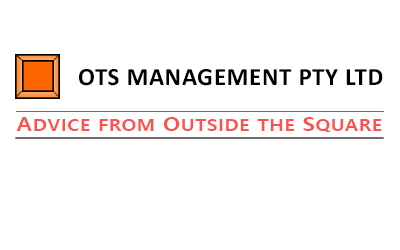In larger companies, establishing an Advisory Board is becoming more commonplace as these large businesses seek to add to the value and experience of their Board of Directors.
This is a trend that can also be of great help to a small business, whether you are operating as a company or not. Most of my clients and readers run family-owned companies or husband and wife operations. Their Boards of Directors are usually the owners. While this provides control of ownership, it does not provide these businesses with fresh perspectives on strategy, reaction to economic trends, specific industry or geographic experience as well as on markets and legal and legislative circumstances.
Knowing your business in and out is great - but think of the added value of a pool of new minds that have a different and fresh perspective on the wider business world.
Advisory Boards are simply a group of experienced business people that you establish to help you operate your business at a more strategic level. They may comprise of friends or people you already know, or you may advertise for interested people who fit certain criteria. They may be paid or unpaid.
An Advisory Board does not replicate or take on the duties, roles and responsibilities of the Board of Directors or the owners.
Apart from the fresh perspectives outlined above, Advisory Boards can also alert the owners about issues that may not even be on their radar, simply because a number of minds is better than one or two, especially if they have some wider views of the business landscape through their experience or full-time positions. Advisory Boards can also act as a sounding board for new ideas, a network (or entry into a network) of business contacts, and serve as mentors for different parts of your business.
If you consider the establishment of an Advisory Board, keep in mind some key "rules".
Firstly, be clear what the purpose of the Advisory Board is. An Advisory Board is not established in accordance with a legal Act and so have its purpose predetermined. It can focus on different aspects of business, so that focus should be clearly defined. Is it to focus on strategy or a specific issue? Is it to be more wide-ranging but still within a specified focus such as marketing and sales, or organisational change and development?
From this decision about its purpose, draw up a charter. List the role and responsibilities of the Advisory Board, its structure, terms of service and delegations or limitations of authority. This document clearly states how the Advisory Board does its purpose.
Next, make sure that you clearly define relationships, whether this description is included in the charter or in a different document such as part of an organisation chart. Make sure there is a clear line between the function of the Advisory Board and yourself as owners, and with your employees. An Advisory Board offers advice - it does not make decisions. Even if you as owners are missing some skills, for example, financial expertise, an Advisory Board does not fill in those gaps.
Then decide on the composition of the Advisory Board. Who should be in it and how many people should there be? This will become easier once you have made decisions about its purpose, its charter, and its relationships with you. You need a group that adds value to what you need through their experience and business connections. Decide on how they are to be chosen and what their term limits will be. Their composition will also help you decide if they are to be offered remuneration. Your cousin the social media entrepreneur may be happy to sit on the Advisory Board as a volunteer to help you, but it is doubtful a busy unrelated entrepreneur with the network connection you need will do so.
If you need to advertise for interested people, then do so. You can also reach out to your lawyer or accountant to see if they know anyone who fits the bill from their pool of clients. In some cases, you can also contact your local Chamber of Commerce or similar business community organisation.
As you receive expressions of interest, make sure you keep referring to the purpose, charter and relationships, and your decisions about the composition to ensure that you choose people that fit.
Once you have established your Advisory Board, there are a number of things you can do to make sure that it is effective.
Organise set dates for meetings and organise these meetings for maximum efficiency. Certainly, a well thought out agenda should be circulated in advance of meetings, accompanied by well written or sourced pre-reading material. You need to keep discussions on track to get the advice you want out of a group of free-ranging thinkers.
Between each meeting keep the members informed about important things that have happened. They will probably only meet between 2 to 4 times a year so they will have very little contact with day to day management and operation of the business. In order to keep their discussions meaningful, it is important to keep them aware of development through a steady and well-managed stream of relevant information throughout the year.
Establishing an Advisory Board for your business is not that hard.
Yet many small business owners may baulk at the idea, probably because it seems as if they lose control or they feel inadequate.
However, if you think of the Advisory Board as no different than getting advice from your accountant, except that it is made up of a more diverse range of experience and networks, and that the advice is a more constant source that is closer to your day to day strategy, then you should see that a non-intrusive Advisory Board can bring a lot of value to your small business.
Let me know what you think! Add your comments below, and if you need advice on setting one up, get in touch with me.




